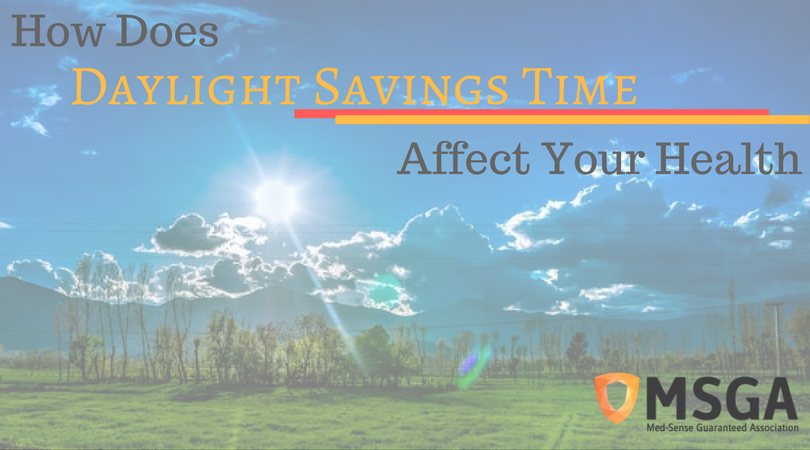Recently, the country went through one-half of the annual tradition of Daylight Savings Time. The clocks were turned back an hour and most people were happy to have an added hour of sleep in their weekend; however, Daylight Savings Time actually has a number of health impacts that people should think about. Going through the upcoming week as though nothing has changed can throw off the body’s circadian rhythm and could actually have a negative impact on people’s overall health just as the cold and flu season kicks into high gear. With this in mind, there are a number of health impacts that Daylight Savings Time can have.
An Increase in Depression
One of the instantly noticeable impacts of Daylight Savings Time is the shift in the timing of the daylight outside. As fall and winter arrive, the suns sets earlier and earlier. With Daylight Savings Time, the shift back an hour means that the sun sets one hour earlier in the day. When people leave work, it is now already dark outside. The lack of daylight can actually increase the rate of depression in the average population. This means that people need to make an effort to get outside more during the day. Take a break and go for a walk. It will even increase the body’s amount of Vitamin D.
Take Advantage of the Sleep
When people realize that they are going to have an extra hour added onto their weekend, some people use it to go out later at night, thinking that they have forever to enjoy the evening; however, because of the body’s circadian rhythm, they will often wake up at the same time. They look at the clock and realize that it is actually one hour earlier. In essence, they have lost that hour of sleep and need to stay up longer because of the added hour in the day. This can deprive the body of much-needed sleep, making them extra tired for the work week. This also increases the chance that they get sick.
Use the Extra Hour to Eat Breakfast
One of the most common problems that people have is a failure to eat breakfast. Yes, people want to soak up every minute of sleep that they can; however, the body needs that food to provide energy for the work day. With an extra hour due to Daylight Savings Time, take the time to eat a full breakfast. This will provide the body with the nutrients it needs for the day ahead. Think about fruit, protein, and carbohydrates as potential fuel options to keep the body healthy and strong.
Daylight Savings Time is a ritual that happens once in the fall and once in the spring. People may not realize that it has impacts on their health until it is too late. Therefore, try and plan in advance to take advantage of the changes once per year. It could wind up having a positive impact on the body’s overall health.

